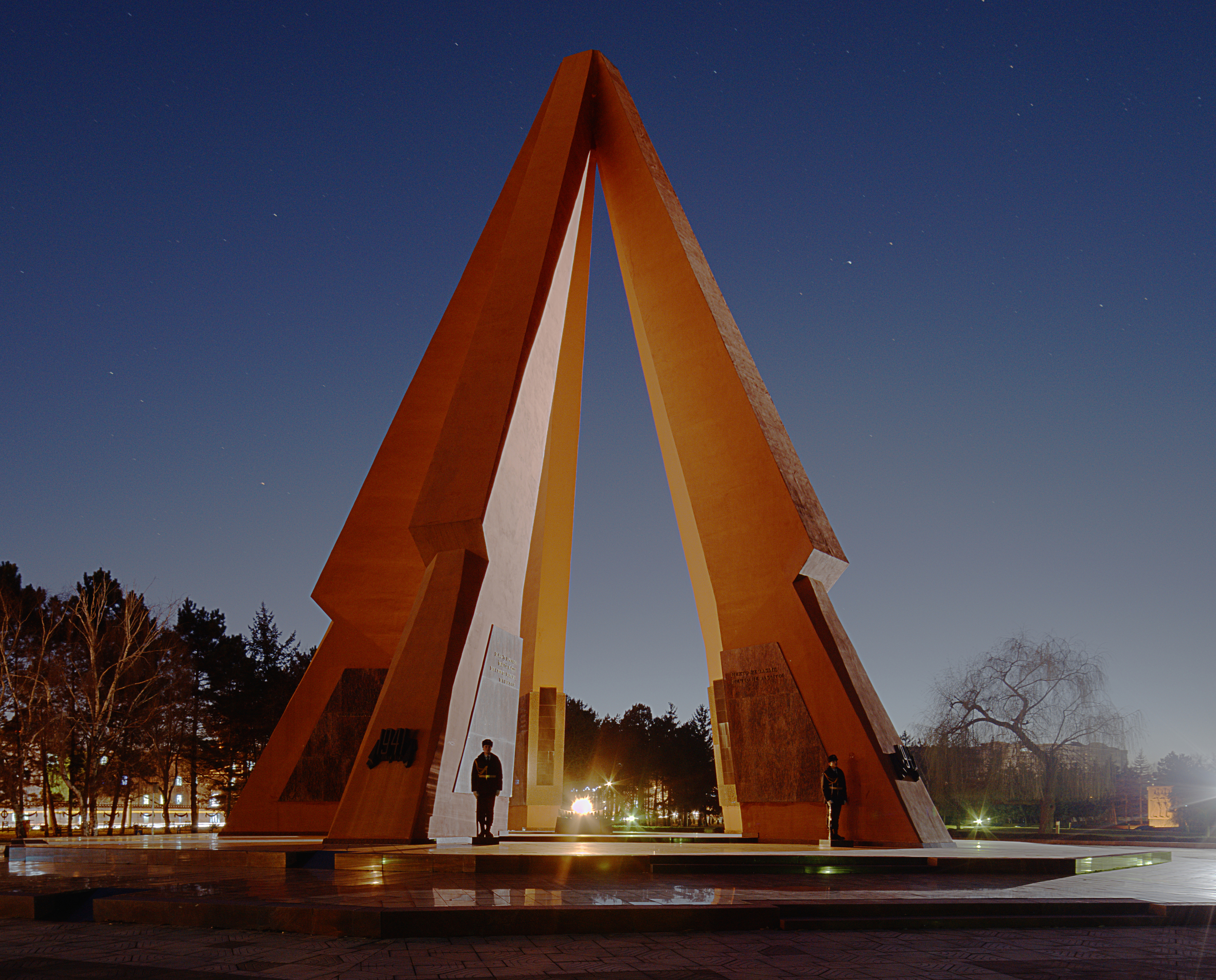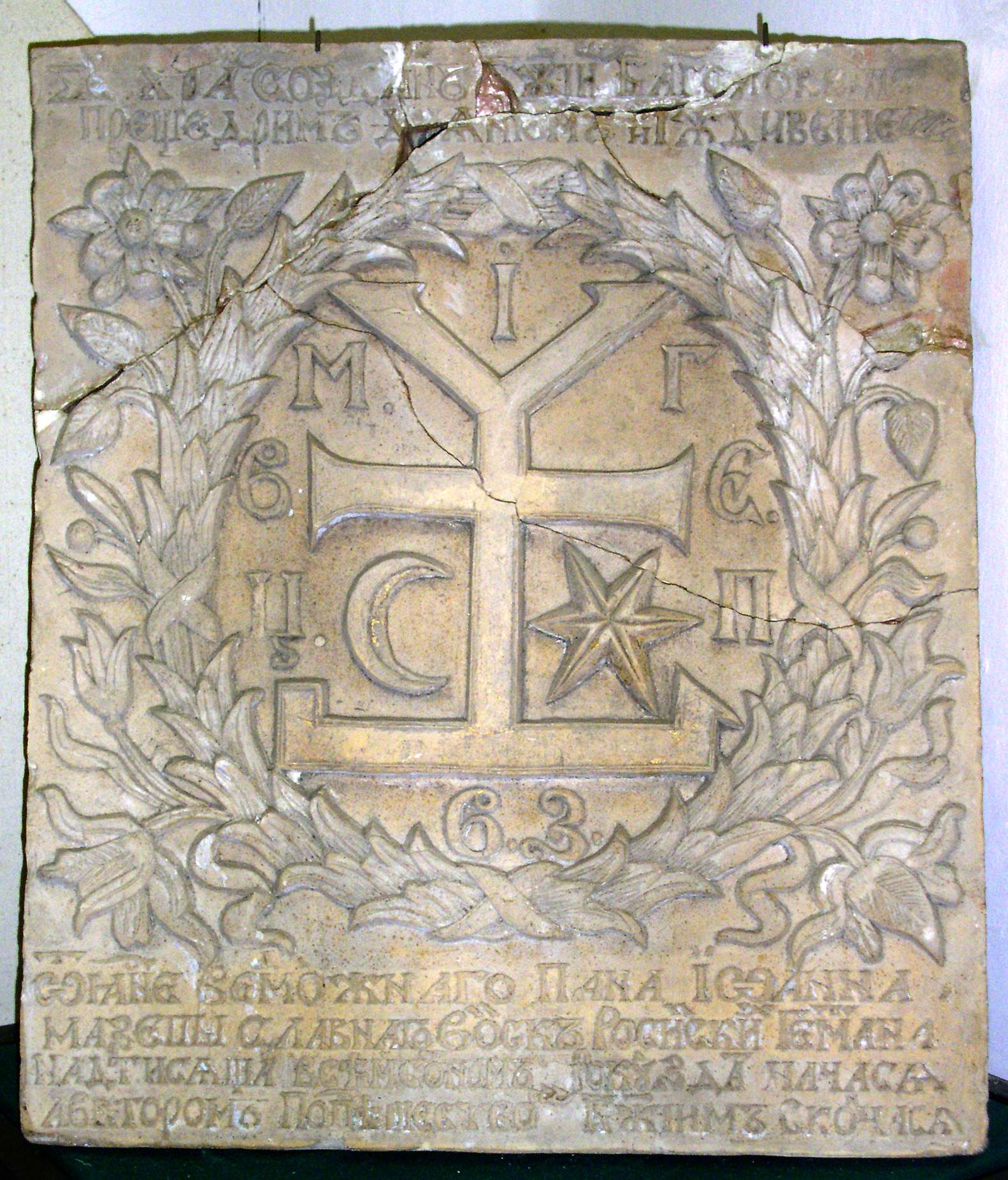|
Varnița, Anenii Noi
Varnița is a village in the Anenii Noi District, in south-eastern Moldova, located near Bender, Moldova, Bender (Tighina). It is also considered a suburb of Bender. After the 1992 War of Transnistria, Varnița remained controlled by the government of the Republic of Moldova, while the city of Bender is controlled by the authorities of Transnistria. History The first mention of the village comes from the company of Sultan Suleiman the Magnificent in a firman directed to Hasan, a bey of Akkerman and the Sandžak. It mentions that according to information provided by Moldovan voivode Alexandru Lăpușneanu, bandits who had committed murders and robberies had found shelter in Varnița or Varnigea near Bender, Moldova, Bender. There is a hypothesis according to which the town was established immediately after the creation of Bender in 1538. The Second Stockholm After losing the battle of Poltava, Monarchy of Sweden, Swedish King Charles XII lived in the village in 1709–1713. ... [...More Info...] [...Related Items...] OR: [Wikipedia] [Google] [Baidu] |
Anenii Noi District
Anenii Noi District (, ) is a district (''Administrative divisions of Moldova, raion'') in the central part of Moldova. As of 1 January 2011, its population was 83,100. Its seat is the city of Anenii Noi. History Localities with the oldest documentary attestation are Gura Bîcului, Teliţa, Mereni, Anenii Noi, Mereni documented for the first time in 1443–1475. The following centuries shows development in the economy (trade, agriculture, customs duties), and a significant demographic growth. The first documentary of the city Anenii Noi is June 27, 1731, with the name Pascani pe Bîc River, Bîc. In 1812, after the Russo-Turkish War (1806–1812), is the occupation of Basarabia, Russian Empire during this period (1812–1917), there was an intense russification of the native population. In 1918 after the Russian Revolution (1917), collapse of the Russian Empire, Union of Bessarabia with Romania, Bessarabia united with Romania in the period (1918–1940, 1941–1944), the district ... [...More Info...] [...Related Items...] OR: [Wikipedia] [Google] [Baidu] |
Alexandru Lăpușneanu
Alexandru IV Lăpușneanu (1499 – 5 May 1568) was ruler of Moldavia Moldavia (, or ; in Romanian Cyrillic alphabet, Romanian Cyrillic: or ) is a historical region and former principality in Eastern Europe, corresponding to the territory between the Eastern Carpathians and the Dniester River. An initially in ... between September 1552 and 18 November 1561 and then October 1564 to 5 May 1568. He was the son of Bogdan III the One-Eyed. His wife and consort was Doamna Ruxanda Lăpușneanu, the daughter of Peter IV Rareș and Princess Elena Ecaterina Rareș (the second daughter of Jovan Branković of Serbia). He was the original founder of the Dormition Church, Lviv, also commonly known as the Wallachian Church. His son Bogdan IV of Moldavia succeeded him and ruled 1568–1572. The writer Constantin Negruzzi wrote the short story ''Alexandru Lăpușneanu'' in 1857 based on the ruler's life; it was turned into an opera by Alexandru Zirra. References {{DEFAUL ... [...More Info...] [...Related Items...] OR: [Wikipedia] [Google] [Baidu] |
Moldovans
Moldovans, sometimes referred to as Moldavians (, , ), are an ethnic group native to Moldova, who mostly speak the Romanian language, also referred to locally as Moldovan language, Moldovan. Moldovans form significant communities in Romania, Italy, Ukraine and Russia. Controversy over ethnic and linguistic identity in Moldova, There is an ongoing controversy in Moldova over whether Moldovans constitute an ethnic group separate from Romanians or not. 77.18% and 7.9% of the Moldovan population declared Moldovan and Romanian ethnicity respectively in the 2024 Moldovan census, with 49.2% declaring their mother language to be Moldovan and 31.3% declaring it to be Romanian. According to opinion polls, around one third of Moldova's population supports Unification of Moldova and Romania, unification with Romania. The term "Moldavian" can also be used to refer to the inhabitants of the territory of the historical Moldavia, Principality of Moldavia, currently divided among Romania (47.5% ... [...More Info...] [...Related Items...] OR: [Wikipedia] [Google] [Baidu] |
European Union
The European Union (EU) is a supranational union, supranational political union, political and economic union of Member state of the European Union, member states that are Geography of the European Union, located primarily in Europe. The union has a total area of and an estimated population of over 449million as of 2024. The EU is often described as a ''sui generis'' political entity combining characteristics of both a federation and a confederation. Containing 5.5% of the world population in 2023, EU member states generated a nominal gross domestic product (GDP) of around €17.935 trillion in 2024, accounting for approximately one sixth of global economic output. Its cornerstone, the European Union Customs Union, Customs Union, paved the way to establishing European Single Market, an internal single market based on standardised European Union law, legal framework and legislation that applies in all member states in those matters, and only those matters, where the states ... [...More Info...] [...Related Items...] OR: [Wikipedia] [Google] [Baidu] |
Chișinău
Chișinău ( , , ; formerly known as Kishinev) is the Capital city, capital and List of cities and towns in Moldova, largest city of Moldova. The city is Moldova's main industrial and commercial centre, and is located in the middle of the country, on the river Bîc, a tributary of the Dniester. According to the results of the 2014 Moldovan census, 2014 census, the city proper had a population of 532,513, while the population of the Municipality of Chișinău (which includes the city itself and other nearby communities) was 700,000. Chișinău is the most economically prosperous locality in Moldova and its largest transportation hub. Nearly a third of Moldova's population lives in the metro area. Moldova has a Moldovan wine, history of winemaking dating back to at least 3,000 BCE. As the capital city, Chișinău hosts the yearly national wine festival every October. Though the city's buildings were badly damaged during the World War II, Second World War and earthquakes, a rich a ... [...More Info...] [...Related Items...] OR: [Wikipedia] [Google] [Baidu] |
Dniester
The Dniester ( ) is a transboundary river in Eastern Europe. It runs first through Ukraine and then through Moldova (from which it more or less separates the breakaway territory of Transnistria), finally discharging into the Black Sea on Ukrainian territory again. Names The name ''Dniester'' derives from Sarmatian ''dānu nazdya'' "the close river". (The Dnieper, also of Sarmatian origin, derives from the opposite meaning, "the river on the far side".) Alternatively, according to Vasily Abaev ''Dniester'' would be a blend of Scythian ''dānu'' "river" and Thracian ''Ister'', the previous name of the river, literally Dān-Ister (River Ister). The Ancient Greek name of Dniester, ''Tyras'' (Τύρας), is from Scythian ''tūra'', meaning "rapid". The names of the Don and Danube are also from the same Iranian word ''*dānu'' "river". Classical authors have also referred to it as ''Danaster.'' These early forms, without -''i''- but with -''a''-, contradict Abaev's hypoth ... [...More Info...] [...Related Items...] OR: [Wikipedia] [Google] [Baidu] |
Government Of Sweden
The Government of the Kingdom of Sweden () is the Cabinet (government), national cabinet of Sweden, and the country's Executive (government), executive authority. The Government consists of the Prime Minister of Sweden, Prime Minister and their Minister (government), cabinet ministers (). The Government is Parliamentary system, responsible for its actions to the Riksdag. The Prime Minister is nominated by the Speaker of the Riksdag, and is elected and discharged by vote of the Riksdag. The cabinet ministers are appointed and dismissed at the discretion of the Prime Minister. The Speaker shall discharge cabinet ministers that have lost a vote of confidence in the Riksdag. The short-form name ' ("the Government") is used both in the Basic Laws of Sweden and in the vernacular, while the long-form is only used in international treaties. Organization The Government governs the country and is Parliamentary system, responsible for its actions to the Riksdag. The Government consists o ... [...More Info...] [...Related Items...] OR: [Wikipedia] [Google] [Baidu] |
Ivan Mazepa
Ivan Stepanovych Mazepa (; ; ) was the Hetman of the Zaporozhian Host and the Left-bank Ukraine in 1687–1708. The historical events of Mazepa's life have inspired Cultural legacy of Mazeppa, many literary, artistic and musical works. He was famous as a patron of the arts. Mazepa played an important role in the Battle of Poltava (1709), where after learning that Tsar Peter the Great, Peter I intended to relieve him as acting hetman of Cossack Hetmanate, Zaporozhian Host and to replace him with Alexander Danilovich Menshikov, Alexander Menshikov, he Defection, defected from his army and sided with King Charles XII of Sweden. The political consequences and interpretation of this defection have resonated in the national histories both of Russia and of Ukraine. The Russian Orthodox Church laid an anathema (excommunication) on Mazepa's name in 1708 and still refuses to revoke it. The anathema was not recognized by the Ecumenical Patriarchate of Constantinople, which considers it C ... [...More Info...] [...Related Items...] OR: [Wikipedia] [Google] [Baidu] |
Principality Of Moldavia
Moldavia (, or ; in Romanian Cyrillic: or ) is a historical region and former principality in Eastern Europe, corresponding to the territory between the Eastern Carpathians and the Dniester River. An initially independent and later autonomous state, it existed from the 14th century to 1859, when it united with Wallachia () as the basis of the modern Romanian state; at various times, Moldavia included the regions of Bessarabia (with the Budjak), all of Bukovina and Hertsa. The region of Pokuttya was also part of it for a period of time. The western half of Moldavia is now part of Romania, the eastern side belongs to the Republic of Moldova, and the northern and southeastern parts are territories of Ukraine. Name and etymology The original and short-lived reference to the region was ''Bogdania'', after Bogdan I, the founding figure of the principality. The names ''Moldavia'' and ''Moldova'' are derived from the name of the Moldova River; however, the etymolo ... [...More Info...] [...Related Items...] OR: [Wikipedia] [Google] [Baidu] |
Cossack
The Cossacks are a predominantly East Slavic Eastern Christian people originating in the Pontic–Caspian steppe of eastern Ukraine and southern Russia. Cossacks played an important role in defending the southern borders of Ukraine and Russia, countering the Crimean-Nogai raids, alongside economically developing steppe regions north of the Black Sea and around the Azov Sea. Historically, they were a semi-nomadic and semi-militarized people, who, while under the nominal suzerainty of various Eastern European states at the time, were allowed a great degree of self-governance in exchange for military service. Although numerous linguistic and religious groups came together to form the Cossacks, most of them coalesced and became East Slavic–speaking Orthodox Christians. The rulers of the Polish–Lithuanian Commonwealth and Russian Empire endowed Cossacks with certain special privileges in return for the military duty to serve in the irregular troops: Zaporozhian Cossac ... [...More Info...] [...Related Items...] OR: [Wikipedia] [Google] [Baidu] |
Military
A military, also known collectively as armed forces, is a heavily armed, highly organized force primarily intended for warfare. Militaries are typically authorized and maintained by a sovereign state, with their members identifiable by a distinct military uniform. They may consist of one or more military branches such as an army, navy, air force, space force, marines, or coast guard. The main task of a military is usually defined as defence of their state and its interests against external armed threats. In broad usage, the terms "armed forces" and "military" are often synonymous, although in technical usage a distinction is sometimes made in which a country's armed forces may include other paramilitary forces such as armed police. Beyond warfare, the military may be employed in additional sanctioned and non-sanctioned functions within the state, including internal security threats, crowd control, promotion of political agendas, emergency services and reconstruct ... [...More Info...] [...Related Items...] OR: [Wikipedia] [Google] [Baidu] |







